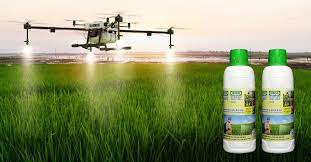Benefits and Responsible Use of Urea Fertilizer in Indian Farming

Urea fertilizer is an important type of fertilizer that provides nitrogen to help plants grow healthy and strong. It is widely used in farming for crops. However, urea needs to be used carefully to avoid any negative effects on plants or the environment. Let’s discuss the benefits and responsible use of urea fertilizer in this blog post. What is Urea Fertilizer? Urea fertilizer is a white, crystalline solid that contains a high amount of nitrogen (around 46-48%). Nitrogen is a nutrient that plants need to grow properly. Urea can be used on different types of soils. It is also used as an animal feed supplement, especially for cattle. Benefits of Using Urea Fertilizer The main benefit of using urea fertilizer urea fertilizer is that it supplies nitrogen to plants. Nitrogen helps plants: Do photosynthesis better Develop healthy, green leaves Grow more biomass and higher crop yields When urea is applied to moist soil, it converts into forms of nitrogen (ammonium and nitrate)...





.jpg)